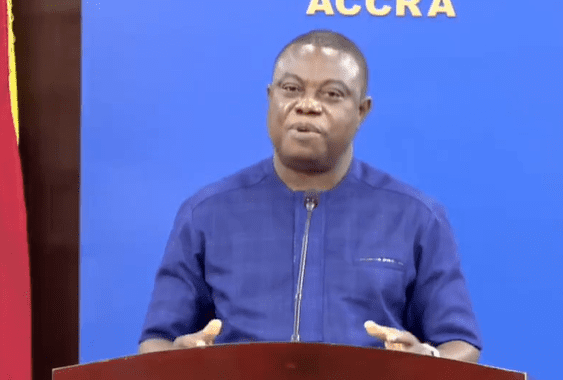
Audio By Carbonatix
Chief Executive Officer (CEO) of Forestry Commission, John Allotey has disclosed that the 35,000 employees in the 'Youth in Afforestation Project' have received three months' unpaid salaries.
Addressing the press on the achievements of the Commission on Thursday, Mr Allotey, noted however, that there remains two months' salaries outstanding.
"I am happy to report that through the Ministry of Lands and Natural Resources, particularly the help of the Minister, Samuel Abu Jinapor and the Minister of Finance, we have recently paid them three months' salary which means the only amount outstanding is two months as we speak," he said.
In May this year, some beneficiaries of the Youth in Afforestation Project convened at the Ministry of Finance to demand payment of their outstanding allowances.
Spokesperson of the group, Bossman Adutwum told the media that beneficiaries of the programme had not been paid since December, 2020.
Earlier, the Youth Employment Agency (YEA) had informed the beneficiaries to demand their monies from the Forestry Commission. YEA explained that the responsibility to pay their salaries is not theirs.
The 'Youth in Afforestation Project' is under the National Afforestation Programme.
There are several components created by the Forestry Commission's landscape restoration interventions.
They include Youth in Afforestation, Modified Taungya System, Projects (FIP, SLWMP, GCFERP), Private Sector Plantation Development and Seedling Production - private sector.
A total of 75,340 individuals have been employed to undertake these restoration interventions.
According to Mr Allotey, some 15,000 individuals are working under the Modified Taungya System (MTS).
"It is the kind of project where we give degraded lands to cooperatives or people who come together. They plant the trees, mostly in the first three years before the canopy is formed. They plant food crops. They benefit fully from the food crops," he explained.
The Chief Executive Officer further revealed that monies generated from the sale of the food crops are handed over to the workers.
"Then we also give them about 40 per cent of the revenue when the trees are harvested as well," he added.
He said this system "improves the economy in the local areas."
Latest Stories
-
Victoria Bright supports lowering presidential age limit to 30
13 minutes -
Where Rain Falls but Water Dies
19 minutes -
Christmas Embrace: Sametro Group honours 250 widows in Tarkwa with gifts
28 minutes -
Victoria Bright: Weak institutions make presidential term extension risky
51 minutes -
Police net 120 suspects in major East Legon drug and crime swoop
56 minutes -
Three suspected armed robbers shot dead by Police in Ashanti region
1 hour -
Why Ghana’s Constitution Review Committee’s Work Should Be Extended to Strategic Communication
1 hour -
Prof. Prempeh defends lowering presidential age, cites Kufuor’s early leadership roles
1 hour -
Presidential Age Limit: Unrestricted democracy could breed chaos – Prof. Agyeman-Duah warns
2 hours -
MP Baffour Awuah advocates for legal framework on presidential continuity, not term extension
2 hours -
Ghanaians entitled to propose constitutional changes – Charlotte Osei
2 hours -
At 30, you lack the experience to be a President – Prof Agyeman-Duah
2 hours -
One-year extension of presidential term unnecessary – Baffuor Awuah
2 hours -
Sam George lauds coordinated crackdown on cybercrime in Tabora and Lashibi
2 hours -
100 arrested in Accra’s Tabora in major Mobile Money fraud crackdown
2 hours

